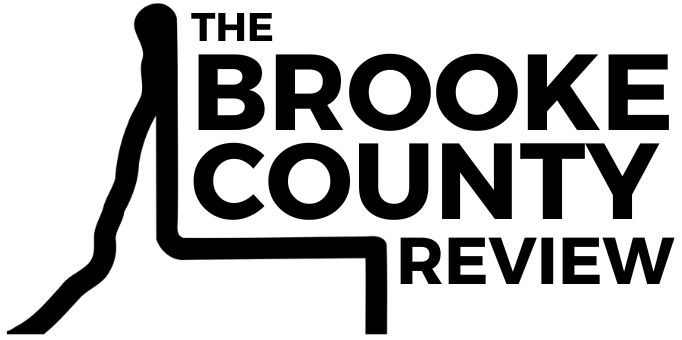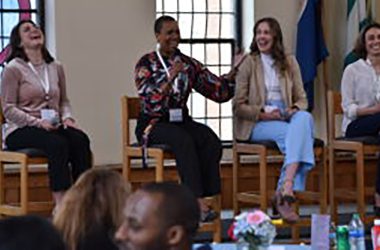Through the efforts of a handful of volunteers and support of various groups and individuals, the Follansbee R.E.A.C.H. Program has been feeding local residents in need for 50 years.
Bonnie James, who has overseen the program since 2015, reflected on its past recently as she watched several employees of Mountain State Carbon carry in large boxes of canned goods.
While the coke plant is slated for closure in the near future, its remaining staff carried out an annual tradition of collecting food for the charity.
They were aided by Ed Wilkerson, who chairs the program’s board of directors.
The steel mill collection, an annual citywide collection by the local office of the U.S. Postal Service and a yearly contribution raised by the Follansbee Christmas in the Park festival have been among the charity’s largest and most consistent benefactors.
James said those and other donations allow the R.E.A.C.H. Program to provide food to 25 to 30 households on a monthly basis.
She added many senior citizens at a local apartment complex are among the recipients.
James said in addition to distributing hundreds of canned and other nonperishable food, the pantry uses monetary donations to purchase meat and produce for those it serves.
At Easter, Thanksgiving and Christmas, the families and singles receive a ham or turkey and special treats, she added.
She noted for a time, the food pantry provided Christmas gifts for the children but had to drop that because of lack of resources.
James had served as the program’s treasurer and office manager before stepping into the top position which, like the others, is strictly volunteer.
And she was involved in 1973 when it was formed by the late Carole Lantz and others. James said Lantz was her best friend and recruited her to help.
Lantz was followed as the program’s director by Ilene Edwards, Sharon McCauley and James.
According to James, much of the food came initially through collections at several local churches, but it also wasn’t unusual for a R.E.A.C.H. volunteer to gather items from their own cupboards when the need arose.
James noted the program also has changed locations.
It had operated on the second floor of the Follansbee City Building with the cooperation of city officials, but it became difficult for the program’s volunteers to ascend steep steps there with heavy boxes of canned food.
In 2011, officials with the Wheeling-Charleston Catholic Diocese and St. Anthony’s Catholic stepped in, offering a large room in the former St. Anthony School where the food pantry presently operates.
James said like the city, “The church is very generous. They don’t charge us anything to use this space.”
She said besides food purchased for the pantry, the program’s biggest expense is $2,0000 needed each year for insurance it’s required to have.
For those interested in donating food, James and others offer the following tips:
— Opened or expired items can’t be used. The food pantry can’t guarantee the quality of such items and would be liable if anyone became sick from them, explained James.
— Canned and jarred items are especially welcome at this time because of a crisis faced by the pantry last year.
Somehow insects known as pantry moths infiltrated the charity’s stockroom, said Wilkerson.
The moths lay eggs in stored grain and other food, and their larvae can chew through the plastic and cardboard of sealed packages.
Because the food pantry’s workers had to dispose of anything that could have been contaminated, about $900 in food was lost, he said.
Special traps were set to eliminate the moths, and the pantry was thoroughly cleaned before it could resume operations, Wilkerson added.
— Foods high in protein, such as peanut butter, or that can be used to create easy meals, like macaroni and cheese, are very useful.
— Monetary donations can be used by the program’s volunteers to buy such items in the quantities they need when they need them.
Wilkerson said he and Karen Hager, volunteer stocker at the food pantry, regularly watch for special sales to stretch the program’s funds as far as possible.
Food is distributed by the program on the Friday after the third Wednesday of each month, though local clergy have arranged for assistance to those in emergency circumstances.
Recipients must present a photo ID, documentation of income and Social Security numbers for each household member served.



